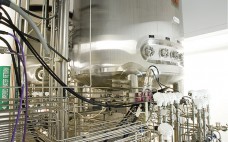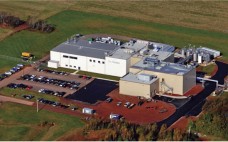Increased understanding of human diseases at molecular and cellular levels is leading to development of novel life-science technologies. Such advancements typically pertain to discovery and manufacturing of novel human therapeutics, new modes of drug delivery, and novel diagnostic technologies. The majority of those technologies are developed by early stage biopharmaceutical companies that have a greater appetite for risk than do larger companies. Early stage biopharmaceutical companies, however, have limited capital raised through personal sources, angel investors, venture capital, or government…
Economics
Managing Contract Relationships with Quality Agreements: Keeping in Mind the New FDA Guidance
Using contract manufacturing organizations (CMOs) to augment your supply chain is not a new phenomenon in the pharmaceutical industry. One of my first projects in industry involved developing a process for a recombinant protein while manufacturing materials for clinical trials. My team recognized that the company did not have the money to build a plant for manufacturing an unproven product, and it was not bullish to the risk of investing, so we turned to a contract manufacturer in Austria. That…
Manufacturers Open Their Wallets for Outsourcing: Accessing Technical Expertise and Cutting Costs
Budgets for outsourcing activities have rebounded in recent years as outsourcing has gradually become a more common and core strategic decision made by bioprocessing companies. Some of the increase in outsourcing activity over the past few years has no doubt been spurred by cost-cutting behavior. But increasing evidence indicates that contract manufacturing organizations (CMOs) are providing specific technical skills that clients may have shed during leaner recession years. In our latest annual industry report (1), we take a close look…
Rapid Development and Scale-Up Through Strategic Partnership: Case Study of an Integrated Approach to Cell-Line and Process Development for Therapeutic Antibodies
Over the past decade, monoclonal antibodies have become mainstream therapeutics for treating a broad range of conditions from autoimmune disorders to cancer. Part of this evolution is increasing time and cost pressure on biopharmaceutical companies to bring new drugs to market 1, 2. Additionally, companies now routinely engineer and screen molecules for developability and manufacturability during discovery before selecting a final candidate molecule. The biosimilar development paradigm also demands significantly more bioanalytical analysis during initial cell-line and process development. Thus,…
Risk Management in Financing of Capital Expansions: How One CMO Grows with Its Customers
BioVectra Inc. is an eastern Canadian contract manufacturing organization (CMO) with expertise in both synthetic chemistry and biomanufacturing techniques. In recent years, it has obtained specialized knowledge in production of highly potent small molecules from fermentation and functionalized methoxypoly(ethylene glycol) products (mPEGs). The focus of BioVectra’s contract manufacturing business is the transfer and scale-up of processes for manufacturing its clients’ products under current good manufacturing practices (CGMPs) as appropriate for the clinical stage of each product. In the current environment,…
Advocating for Advanced Therapies
My sense is that we’ve come a long way and that 2013 was actually a very good year — perhaps maybe even the best year ever for regenerative medicines and advanced therapies. Clearly the financial markets have allowed us to do more in terms of raising capital to fund projects in this space, and we are seeing a growing interest in the sector in the investor community. We’ve seen a number of major financing events over the course of the…
Cell Therapy Will Transform the Future of Medicine
The third annual IBC Cell Therapy Bioprocessing conference was held in Bethesda, MD, on 21–22 October 2013. It brought pioneers in the development of cell-based therapies together with companies that have enabling technologies, such as bioreactors, cell culture media, and advanced monitoring software. After the conference, I discussed the highlights and key themes coming out of the event with Dr. Phil Vanek, general manager of cell bioprocessing at GE Healthcare Life Sciences in Westborough, MA. Also an instructor for advanced…
Thinking Strategically
At the recent Phacilitate Gene and Cell Therapy Conference (27–29 January 2014 in Washington, DC), BPI’s editor in chief Anne Montgomery and publisher Brian Caine spoke with Richard Grant, executive vice president, life sciences, at Invetech (www.invetech.com.au); and Brian Hanrahan, program manager at Invetech. They and their colleagues were instrumental in advising us how to bring ongoing discussions of regenerative medicines into BPI four years ago for the first Cell Therapy Supplement issue. We asked them to comment generally on…
Accelerating Purification Process Development of an Early Phase MAb with High-Throughput Automation
Monoclonal antibodies (MAbs) are the fastest growing segment in the biopharmaceutical industry because they are potentially efficacious in the treatment of diseases such as cancer and autoimmune disorders (1,2). With steadily increasing demand for efficient and affordable therapies, speed to clinic/market is important, and biopharmaceutical companies push multiple drugs into development each year to ensure business sustainability (3,4,5,6). Downstream purification process development for therapeutic MAbs is a critical step on their path to reach clinical trials and beyond…
Single-Use, Continuous Processing of Primary Stem Cells
Many potentially therapeutic products involve the culture of stem cells. Their commercial success depends on the development of scalable good manufacturing practice (GMP) technologies that can both robustly and cost-effectively produce very large numbers of cells. Through many improvements and innovations in bioprocessing operations over the years, fed-batch suspension culture has remained the most common mode for large-scale biopharmaceutical manufacturing. However, some recent events suggest that may be changing (1,2). For the culture and expansion of stem cells, large-format adherent…





